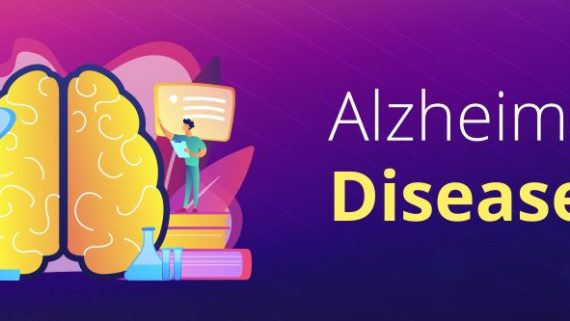Being heart healthy and knowledgeable is so important for your overall well being. Knowing the steps to take to achieve a healthier life style can truly make an impact on someone’s daily life. There is a misconception that heart failure means that the heart completely stops. Heart Failure means that the heart does not pump blood and oxygen throughout the body the way it should. This condition affects affects about 5.7 million people in the U.S. but there is hope.
Heart Healthy Foods
There are several foods you can eat more of tips for maintaining a healthier heart. Berries, acai and tomatoes are some of the many heart healthy foods to include in your diet. Learn more here.

Exercise
Think its too late to exercise, especially if you are not used to the routine? Think again! According to the Harvard Heart letter, “even short forms of structured exercise may improve your heart health.” Starting out with walking at least 10 minutes a day can really make a difference, especially if you are new to the routine. Click here to learn more about exercising techniques.

Looking forward
There is a lot you can do to maintain a healthy heart. If you are struggling, don’t give up hope. If you would like to know more about how you can check up on the overall status of your health at no cost, learn more about our free screenings here. Our free screenings include checking for blood glucose, depression, memory loss, blood pressure, and pulmonary function. Learn more today! And remember to schedule regular check-ups with your doctor. If you want to make your doctor happy, keep good records of your vitals or lab numbers, and bring them to your appointments.

Seasonal Depression
It’s very common to feel sad during this winter season. Millions of Americans suffer from some form of depression every year. That being said, you are not alone. There are many resources to help including free screenings, therapy, support groups, exercising, and many more. However, admitting that you want help is the first step to living a happier and healthier life.
Statistics

Most Common Signs And Symptoms of Depression
- Loss of interest in activities that were once enjoyable
- Fatigue and lack of energy
- Appetite or weight changes
- Physical symptoms such as headaches, stomachaches, or back pain
- Recurrent thoughts of suicide
- Difficulty sleeping, sleep disturbances, and/or having a hard time getting out of bed
- Difficulty thinking clearly, making decisions, or concentrating
- Feeling of isolation or wanting to be isolated for long periods of time
Possible Treatment Options
- Sign up for a clinical trial and/or free screenings for depression
- Therapy – speaking with a psychologist
- Medication
- Exercise (physical and mental), Yoga, Meditation
- Keeping a journal (writing down your thoughts instead of bottling them up)
- Write short and long-term goals for yourself
- Calling a depression hotline if you don’t feel comfortable talking to a therapist
- Seeking support groups, or talking to someone you feel close to
Clinical Research May Be An Option!
As mentioned, participating in a clinical trial is available as a treatment option. The benefits of volunteering for a study include, but are not limited to the following:
- Helping future and current generations
- You or your loved one may have access to new treatments, not available to the public
- Data collected from the results is used to determine whether a new medication or therapy is safe and effective.
ActivMed Practices & Research Inc. is passionate about helping those with depression by conducting clinical trials. If you or someone you know is diagnosed with depression or is not sure whether they have depression learn about these study opportunities and see if you qualify. Click HERE.
Looking Forward
Recovery is a slow process, but these treatment options can be very helpful. However, it is not a race, and you shouldn’t put too much pressure on yourself to get better right away. Depression affects people of all ages, races, ethnicity, and backgrounds. Depression can be deceiving in the sense that the people who appear to be “fine” are actually the people who are struggling with it the most. It is also good to help others who suffer from depression as well. Together we can be healthier.
Ever wondered what a medical screening is and how it could benefit you? Health screenings are tests that look for diseases before you have symptoms. Screening tests can find diseases early, when they’re easier to treat. You can get some screenings in your doctor’s office. Others need special equipment, so you may need to go to a different office or clinic.
Some conditions that are commonly screened for include:
- Breast cancer and cervical cancer in women
- Colorectal cancer
- Diabetes
- High blood pressure
- High cholesterol
- Osteoporosis
- Overweight and obesity
- Prostate cancer in men

ActivMed Practices & Research Inc provides health screenings at no cost to you.
At ActivMed Practices & Research Inc., we offer free medical screenings for Depression, Blood Pressure, Blood Glucose, Memory, and Lungs. Which tests you need depends on your age, your sex, your family history, and whether you have risk factors for certain diseases. After a screening test, ask when you will get the results and whom to talk to about them. Visit our free screenings here.
Memory Screening
Curious as to what to expect from a memory screening? A memory screening can help detect if an additional check-up is needed by a qualified healthcare professional. Interested in learning more? The following article provides more information on memory screenings.
**UPDATE**
We are now able to offer a no contact Telehealth Memory Screening- All information is confidential, following all HIPAA guidelines.
Call us at 978-655-7155 to learn more or request a call online here.
Alzheimer’s is a progressive disease that affects an individuals brain and disrupts their thinking skills and cognitive abilities. It affects over 5.5 million Americans today. Memory loss and confusion are among the main symptoms that people tend to notice right away. As the disease progresses, communication, language, decision making, movement problems, and behavioral problems may also be present.
Although the disease does have its complications, that doesn’t mean that those experiencing it have to stop living their day to day lives.
Here are some tips for living with Alzheimer’s:
1. Develop a daily routine and write down important dates! Make a daily plan to keep track of the few tasks you want to accomplish each day. Having a schedule can reduce the time you spend figuring out what needs to be done and when, and makes you more successful in accomplishing your goals and limiting mistakes.

2. Approach one task at a time and don’t get stuck. Give yourself enough time to complete a task. Don’t pressure yourself to succeed. If something becomes too difficult, take a break and try again later.
3. Recognize the triggers that cause you stress. What are the triggers that cause you anxiety, worry or stress? For example, if others are hurrying you, explain what you are trying to accomplish and ask that they provide you the time needed to be successful. Knowing what causes stress allows you to make plans in advance or decisions about the type of activities/tasks you choose to participate in.
4. Join a recreational center/program with people of the same age who might also be dealing with the same issue. It is always good to be surrounded by a community than live in solitude, especially when dealing with the disease.

Looking forward
These tips will take time to adjust to, but they might help in dealing with Alzheimer’s disease. Other options to look into are participating in clinical research. As part of Alzheimer’s awareness month, ActivMed Practices and Research is enrolling for an Alzheimer’s study at no cost to you or your family!! To learn more and see if you qualify, click here or call us directly at 978-655-7155!




